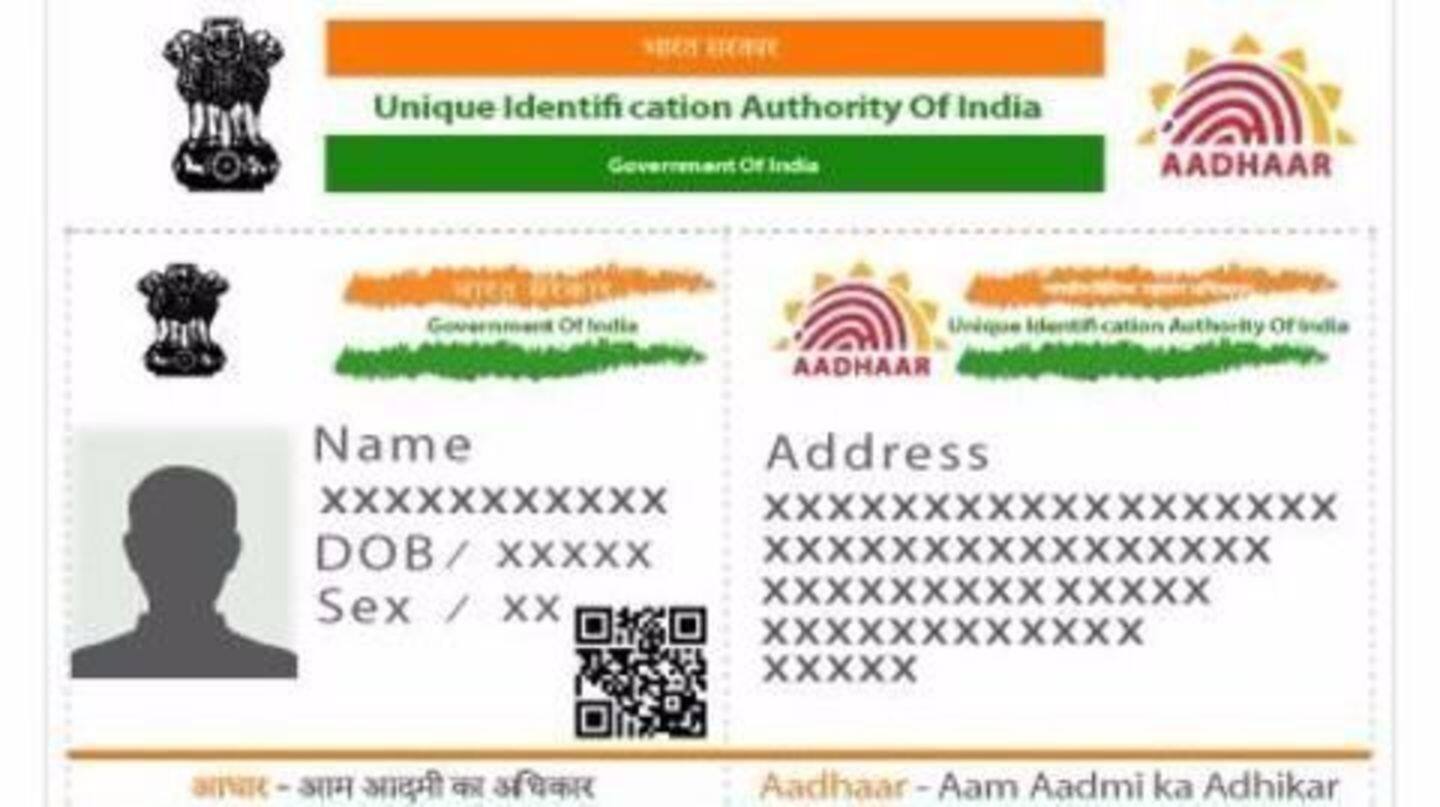
Aadhaar-PAN linkage to target black money, terrorist-financing: Centre tells SC
What's the story
Centre on Tuesday conveyed to the SC that Aadhaar was made a pre-condition for PAN cards in order to identify fake PAN cards used for terror financing and circulation of black money.
Centre's stand was clarified by Attorney General Mukul Rohatgi, while appearing in a case challenging Aadhaar-PAN linking.
Rohatgi further highlighted the effectiveness of the system and slammed privacy concerns as bogus.
Do you know?
PAN and Aadhaar under the Income Tax Act
Section 139A, introduced in 1975 made Personal Account Number (PAN) mandatory for unique identification of taxpayers. Introduced through the Finance Act 2017, Section 139AA makes it mandatory to link Aadhaar cards or enrolment ID of Aadhaar applications for applying for PAN card or filing taxes.
Background
Why is the government pushing for unique identification?
Aadhaar was initially debated in 2009-10 as part of the UPA government's Unique Identification Programme. It intended to ensure that funds allocated for poor people ultimately reached them.
In recent times, Aadhaar has been placed as a nodal point to carry forward the government's efforts toward digitization and crackdown on black money, bringing in transparency in financial transactions, keeping economic offenses at bay.
Benefits
How has Aadhaar benefited India so far?
Rohatgi notes that introduction of Aadhaar has saved the government more than Rs. 50,000crore which has translated to benefits to the poor and pension schemes.
"Aadhaar is an effective tool to check terror financing and black money... and ensures that money reaches poor people through various schemes. The idea is that burden on honest taxpayers should not be made unbearable for them," he said.
Quote
Avoiding duplication
Rohatgi noted that PAN cards are more prone to duplication than Aadhaar cards. "We have found multiple PAN cards but not multiple Aadhaar. Out of 113.7 crore Aadhaar, we have not found that one person is having more than one Aadhaar card." He added.
Details
How does the centre view privacy concerns?
Terming privacy concerns bogus, Rohatgi noted that, information provided through Aadhaar cards is encrypted using fool-proof technology, rendering it inaccessible, unless demanded as evidence by a court.
On the place that privacy holds in state-individual relationship, he noted that state as the provider of certain facilities is entitled to its citizen's identity and that nobody exists in a vacuum in today's world.
Legality
On the forceful nature of Aadhaar
Responding to the petitioner's challenge that the government through Aadhaar was forcing citizens to part with personal details, Rohatgi noted that the language of the section did not suggest Aadhaar as a voluntary matter, but mandated those who don't have it to apply for it.
He added that taxation by nature is coercive and therefore requirements to file taxes cannot be viewed as forceful.
Conclusion
The bigger picture
No man can afford to be an island in today's world. Aadhaar in this context simply adds to pre-existing means of identification including passport and driving license.
Moreover, methods of identification like Aadhaar are essential for the government to facilitate smooth delivery of services and benefits to citizens.
However, privacy concerns continue to loom large in pending enactment of a data protection law.